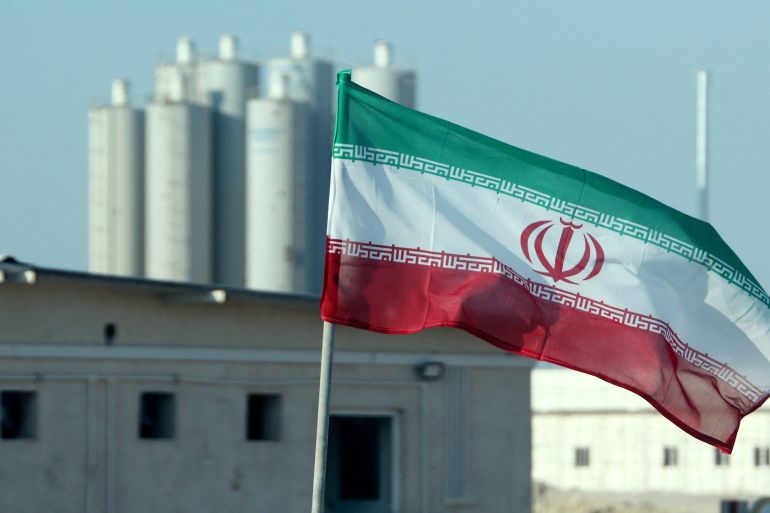US, European powers condemn Iran uranium metal decision
Iran gave notice to the UN watchdog IAEA of concrete steps to produce uranium metal enriched to up to 20 percent purity.

The United States and European powers have condemned Iran’s decision to produce uranium metal enriched to 20 percent purity but the US said the window for diplomacy to allow both to resume compliance with the 2015 nuclear deal remained open.
The International Atomic Energy Agency (IAEA) reported on Tuesday that Iran intended to enrich uranium to 20 percent, in the latest sign the Vienna talks on reviving the joint comprehensive plan of action could be stalling.
Keep reading
list of 4 itemsIran says Israel attacked Karaj site to thwart nuclear talks
In Pictures: Refugees make risky journeys from Iran across Turkey
Standing up to the US on the Iran deal is not an option
The move takes Iran a step closer to developing materials that could be used to make a nuclear weapon.
“It is worrying that Iran chooses to escalate its non-performance of its [nuclear deal] commitments, especially with experiments that have value for nuclear weapons research,” US State Department spokesman Ned Price told reporters at a briefing.
“It’s another unfortunate step backwards for Iran, particularly when we for our part have demonstrated our sincere intention and willingness to return to the [deal].”
Iran’s envoy to the IAEA, Kazem Gharibabadi, confirmed the news, saying the first silicide fuel plate will be produced soon using 20 percent enriched uranium for medical purposes.
“This move, which will significantly improve the quality and quantity of radiopharmaceuticals, will turn the Islamic Republic into one of the advanced countries in nuclear technology,” he said.
Ever since former President Donald Trump pulled out of the Joint Comprehensive Plan of Action agreement (JCPOA) in 2018, Iran has gradually been violating its restrictions to put pressures on the remaining parties – the three European nations, Russia and China – to come up with economic incentives to offset crippling American sanctions.
Meanwhile, Germany, France and the United Kingdom also voiced “grave concern”, saying in a joint statement that Iran was “threatening a successful outcome to the Vienna talks”.
“Iran has no credible civilian need for uranium metal R&D and production, which are a key step in the development of a nuclear weapon,” the UK, France and Germany said in a joint statement.
“We strongly urge Iran to halt all activities in violation of the JCPOA, without delay and to return to the negotiations in Vienna with a view to bringing them to a swift conclusion,” the statement added.
The talks in Vienna are aimed at bringing the US under new President Joe Biden back into the JCPOA. Biden has expressed readiness if conditions are met by Iran.
The 2015 accord is aimed at preventing Iran from developing nuclear weapons. Tehran denies it is seeking such an arsenal.
However, the talks which began in April have not moved forward in recent weeks.
With Ebrahim Raisi, a new conservative president, due to take office in Iran on August 3 and succeed the more moderate Hassan Rouhani, it is also not clear what will happen when they do.